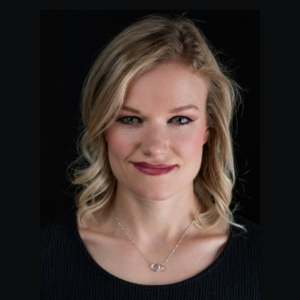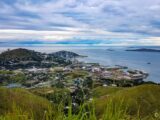I landed in Port Moresby, Papua New Guinea (PNG for short), on the 1st of January 2017. Never book a new year’s eve flight…seriously.
It was the first move for me to a developing country. Unsurprisingly, I suffered from quite a culture shock when I arrived. I’ve written more about what it was like to live in PNG here.
The first two years, I worked for a German freight forwarding company as a Project Manager. I helped build the first (and probably the last) Hilton hotel in PNG as well as the new US Embassy.
Fed up with the unforgiving work schedule and limited flexibility of a corporate job, I started my own business.
The 9th of October 2020 marked the day I left PNG for good. Now is the perfect time to reflect on what I hated and loved about living and working there and the lessons I’ve learned.
1. Expect the unexpected
When I was working in freight forwarding, we had to follow a process to get the cargo cleared from the port and to the client. A very manual process with lots of paper involved but still straightforward.
What made the job so difficult was that nothing ever went smoothly. There was always some kind of problem. The most unexpected, absurd things would happen.
For example, customs shut down for a week because they hadn’t paid rent for their office building. The landlord closed it, and we couldn’t get their approval to move the cargo. How do you plan for this??
What I learned was to adapt quickly to ever-changing circumstances. To switch instantly from “why is this happening now, dammit” to “ok, I can figure this out”.
Even though this was frustrating as hell, there was no point complaining. I had to act and focus on what I could control.
2. Living a slower pace of life
PNG’s culture is very much in contrast to my own – the always-on, getting things done asap German way of working. This country runs on island time. Which means everything happens…eventually, at some point…but never immediately. People don’t like to be rushed.
While this was driving me crazy in the beginning, I eventually began to appreciate it. I realized that pretty much all deadlines are completely arbitrary. Most of the time, we’re creating pressure out of nowhere for ourselves and the people around us. Nothing terrible happens when we move at a slower pace.
3. Value the little things
I’ve taken so much for granted my whole life. Like being able to go for a walk outside. Or always getting the exact food I wanted in the supermarket. We don’t ever take a moment to appreciate those little things.
I only started to value these luxuries when they suddenly disappeared. It wasn’t safe to walk outside anymore (and too hot anyways most of the time). I wouldn’t always find the right ingredients (it’s an island, so almost everything is imported). And generally, there were way fewer options available for things to do or buy.
Now that I’m in the developed world again, I’ll probably soon go back to taking everything around me for granted. But from time to time, I’ll remember what it was like without.
4. Maybe I don’t need all this stuff to be happy
PNG doesn’t have Starbucks or McDonalds. There’s no H&M or any of the other clothing brands you find everywhere else in the world. For electronics, you’d pay almost double the price you’d spend in the US or Australia.
I had already figured out that physical items don’t matter much to my happiness a couple of years ago. And living in PNG proved that I could go for months without buying anything new without feeling like I’m missing out.
Traveling around the country reminded me of how little humans need to survive. The majority of the population lives in small villages, with often just the bare minimum. No easy access to a supermarket or hospital. Not even electricity or running water. Still, they get by, live their lives, and are in general extremely friendly, welcoming people.
5. Learn the local slang
PNG used to belong to Australia, and the Australian expat community still has a strong influence in the country. If you want to mingle, you better get used to the Australian way of communication. Or stay utterly confused.
When I went for dinner for the first time at the Royal Yacht Club in Port Moresby (a popular spot with the expats), I noticed a sign saying “no thongs allowed”… and thought to myself, how would they know? Turns out, thongs are actually flip flops in Australia. Luckily I figured this out without embarrassing myself.
It’s also essential to learn to interpret the Australian way of agreeing or disagreeing. If you hear a “yeah nah” in response to your question, you might be thinking that the person is saying “yes,” but it’s actually “no”. This also works the other way around. “Nah yeah” means “yes.”
6. Timezones matter
PNG is in the same timezone as Brisbane or Sydney, which is 8 hours ahead of central Europe and 14 hours ahead of the US east coast. That leaves very limited overlap in the working hours of the day to connect with people. I often got up in the middle of the night to attend calls and participate in online courses.
Even though I can work mostly asynchronous, I still felt left out from time to time. I’ve missed many faced-paced exchanges on Twitter, Facebook, Slack, you name it. When I woke up hours later, I had to play catch up to a flurry of messages.
I realized that being in a common timezone matters more than I thought for building and sustaining connections.
What’s next?
I’m staying in the US for a couple of weeks before moving to Canada. Probably not the smartest idea to leave a tropical island in autumn to move to the great white north. Oh well!
I’ll definitely miss looking at the ocean every day. And getting as much as fresh coconut water as I can drink. I’d love to visit PNG again in 10 years to see what has changed (or not). In any case, it will always hold a special place in my heart.






